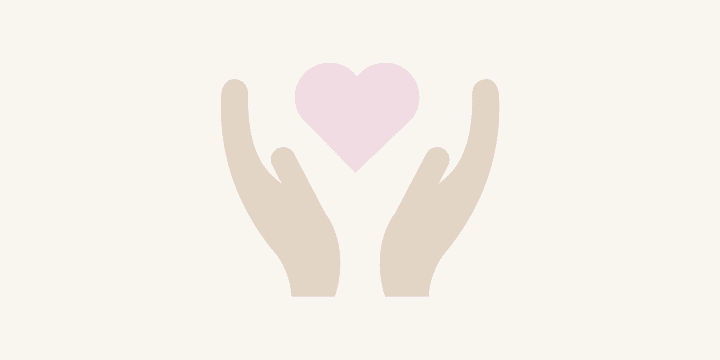There are no products in your basket.
MagazineWhen Life Gives You Lemons...
![When-life-gives-you-lemons-2.jpg?w=1024&h=427&scale When-life-gives-you-lemons-2.jpg?w=1024&h=427&scale]()

Ali Norell shares an open account of how she copes when life suddenly feels like it’s falling apart.
I used to despise this phrase. It’s trite, it’s cliched and it seems to suggest that, no matter what life throws at you, you can find joy, just like that. ‘When life serves you lemons, make lemonade’. Simple.
I’m a naturally positive person. In a tricky spot or even in a crisis, I’m usually telling those around me not to worry, that everything will be okay, that there’s always a way to fix things. In fact, I’d go as far as to say that I’m not even a ‘glass half full’ person, more of a ‘glass overflowing’ one.
All that changed in July 2014 when our youngest daughter, Romy, died suddenly from a brain haemorrhage aged just five months. My world shattered, I caved in on myself and all the cheerful, positive, uplifting phrases I’d spouted so often rang hollow in my ears. To be frank, I just wanted to die, and if it hadn’t been for my two surviving children and husband, I very well might have.
Those around me did their utmost to try and lift me but to be honest, unless they had also buried a child, I didn’t really want to hear it. Nevertheless, people tried – because people are kind and want to help – and they told me that they knew exactly how I was feeling because their dad died, because their child had been stillborn, because their mum’s sister had died at the age of two. In my world, nobody knew because none of them were me.
As recent events put us all into lockdown I have been struck by how closely some of its elements resemble my self-imposed, grief-fuelled ‘lockdown’ of six years ago. Neighbours rallied round, we arranged food drops to each other, we asked how people were doing and actually listened to the response, we shared our resources, we listened – over WhatsApp, Zoom and garden fences. And with an outside threat circling our homes, we took comfort in the little bubble we had created inside. Just like six years ago, it was just me, my husband and our kids. We mostly had compassion for each other and we did our best to keep going as a unit when nobody could tell what the next day would bring. This is a lot like grief.
I have thought continually about how COVID19 has sparked a kind of worldwide grief and I keep finding myself thinking about Swiss psychiatrist Elisabeth Kubler-Ross’s renowned seven stages of grief: shock, denial, anger, bargaining, depression, testing and acceptance. They are all there, and I imagine that, as we begin to find our collective way back out into the world the legacy of that grief will continue for some time to come.
As my husband and I grappled with our grief six years ago, we kept coming back to the same key elements in our search to make sense of it all. We asked, ‘What do we have to learn here?’ and when our anger caused us to question, ‘Why? Why our daughter? Why us?’ we repeatedly came to the answer, ‘Why not us?’ We felt strongly that we would only overcome this, the most horrific of all imaginable negative situations, by cultivating the positive.
Below are some of the mantras we lived by during that time, and which I find I’ve pulled out again over the past few weeks:
1. Learn to love your own company.
Many of us live lives in which there is very little opportunity to be truly alone. Truth be told, many of us avoid this circumstance as we fear being alone with our own thoughts, fears and anxieties. During lockdown, some have faced endless stretches of time alone while others have craved space away from loved ones. Learning to be still by yourself, whether this is with meditation, reading, gardening or walking–without a soundtrack or phone at hand–can help us to build strength and confidence, and to remember: we are enough.
2. Confront your fears.
When faced with a difficult situation I would often remember something my father would say: ‘What’s the worst case scenario?’ Obviously, after my daughter died I would tell myself that I was in the worst possible scenario, before I remembered that for some, the situation is worse even than that. This taught me to look for the positives in the bleakest of situations: thank goodness I could be with my daughter as she passed. Thank goodness we were
surrounded by loving friends and family. Ask yourself: what can I learn from this experience? Where there is fear, there is always something to be thankful for.
3. Write about how you feel.
Even if you don’t consider yourself a writer: write! I began with a blog, Remembering Romy, to help friends and family to understand my grief before I came to realise that I had a lot to write for myself, and for Romy. This became my book, The Truth Inside (O Books, 2019). For me, writing trumped therapy and helped me to express and understand my feelings.
4. Establish routine.
Humans are creatures of habit, and when placed in a situation that triggers all our primitive “Fight or Flight’ responses, some routine can provide feelings of security and calm. This can be anything from a daily walk, an evening soak in the bath, stopping for a favourite drink mid morning. They all help to build hope and positivity.
As our country has gradually eased itself out of lockdown and back into something resembling a ‘new normal’ (another favourite post-bereavement term) we can look back on this time with the sense of having kept moving forward, which, you might argue, is the very essence of life; what drives us all. And if post-lockdown life gets too frantic you can always find a quiet moment, dig out a recipe and make some lemonade.

Ali Norell
Ali is the author of The Truth Inside: Messages from my Daughter in the Afterlife (O Books, 2019) and the blog, Remembering Romy; both written following the death of her youngest daughter in 2014. She is also a healer, psychic medium and inspirational speaker. Ali holds a degree in English Literature and a Creative Writing Diploma and is currently immersed in writing her first historical fiction novel. She lives in Brighton with her husband, three children and two cats.



















